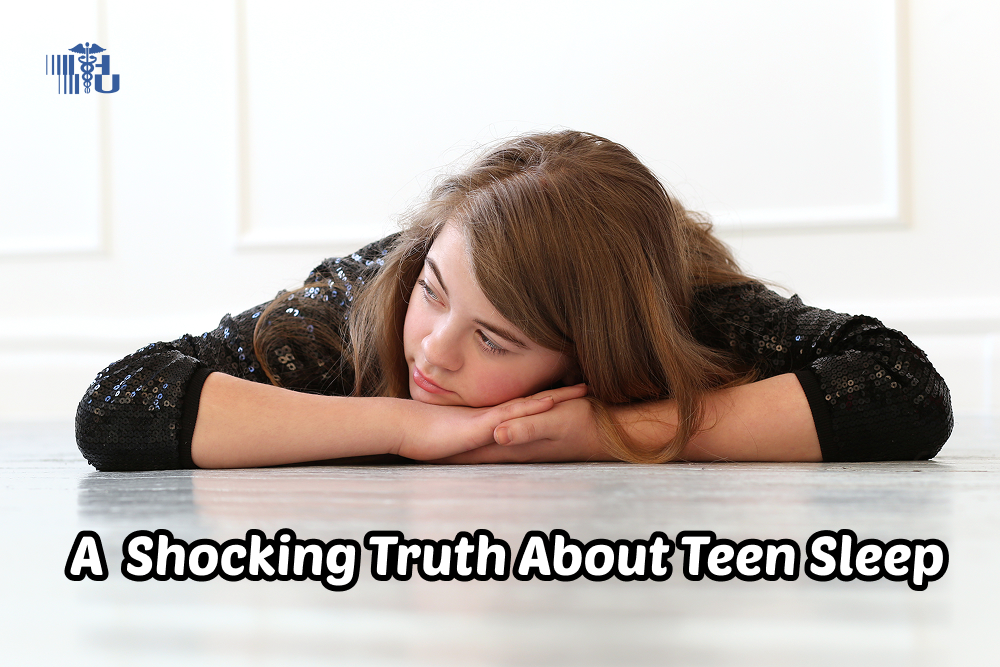Sleep plays a vital role in a teen’s physical growth, emotional well-being, and mental development. But with rising rates of anxiety among adolescents, it’s no surprise that sleep disturbances are becoming increasingly common. Anxiety doesn’t just affect mood — it can seriously interfere with your teen’s ability to get restful, consistent sleep. As a parent, caregiver, or guardian, recognizing when anxiety impacts your teen’s sleep is key to getting them the support they need and protecting their mental and behavioral health.
In this article, we’ll walk through 10 important warning signs that anxiety is negatively affecting your teen’s sleep, and explain why early intervention with professionals like Psychiatrists, Psychologists, or Therapists can be a game-changer.
1. Trouble Falling Asleep
One of the earliest signs that anxiety is interfering with sleep is when your teen struggles to fall asleep at night. An anxious mind tends to race with worries about academics, relationships, or family issues, making it difficult to relax and drift off.
Behavioral health treatments and mental therapy, such as Cognitive Behavioral Therapy for Insomnia (CBT-I), are highly effective ways therapists use to help teens manage these spiraling thoughts and establish calming bedtime routines, often without medication.
2. Waking Up Repeatedly During the Night
Even if your teen manages to fall asleep initially, anxiety may cause them to awaken multiple times throughout the night. They might be disturbed by anxious dreams or feel hyper-alert, disrupting the natural sleep cycle.
This broken sleep pattern can leave them exhausted the next day and amplify anxiety symptoms. Psychiatrists and therapists can work together to evaluate if Medication Management alongside therapy would help improve uninterrupted sleep.
3. Nightmares or Night Terrors
Anxiety often triggers vivid nightmares or intense night terrors in teens, leaving them waking up fearful, restless, or physically distressed. These frightening experiences undermine their sense of safety around bedtime.
Behavioral health approaches like relaxation techniques introduced during therapy sessions can help reduce this nighttime anxiety and promote better sleep quality.
4. Persistent Daytime Fatigue
If your teen frequently feels overwhelmingly tired during the day despite adequate time spent in bed, it could point to poor-quality sleep caused by anxiety. Excessive daytime sleepiness not only affects energy levels but can also worsen concentration and mood, often feeding into depression.
Mental health professionals may evaluate these symptoms through in-person visits or Telepsychiatry if access is limited. Psychiatrists can assess if medication is needed to help reset sleep patterns.
5. Resistance to Bedtime or Sleep Rituals
Anxiety can create negative associations with sleep for teens, causing them to avoid bedtime routines or delay going to bed altogether. This behavior often disrupts their internal body clock and increases anxiety due to erratic sleep times.
Therapists work with teens to develop consistent, restful sleep habits incorporating anxiety-reduction strategies such as mindfulness and controlled breathing exercises.
6. Physical Symptoms at Night
Anxiety doesn’t just affect the mind; it can cause physical symptoms like stomach pain, headaches, or an accelerated heart rate that interfere with sleep. Teens might wake up feeling physically uncomfortable or restless.
Drawing on expertise from both psychiatry and therapy, mental health providers help teens address these physical and emotional signs of anxiety through coping skills and sometimes medication.
7. Increased Irritability and Mood Swings
Interference with deep, restorative sleep can seriously impair emotional control. If your teen has become more irritable or experiences sudden mood swings, anxiety-related sleep disturbance could be a significant contributing factor.
Regular mental therapy with child and adolescent psychologists can teach important emotional regulation skills and help prevent the worsening of anxiety or the onset of depression.
8. Difficulty Concentrating or Poor Academic Performance
Sleep disruptions caused by anxiety often interfere with cognitive abilities like focus, memory retention, and decision-making. If your teen is facing academic challenges or seems unusually distracted, their anxiety and poor sleep may be to blame.
Referral to behavioral health specialists can offer interventions that address both learning and emotional challenges. This may include a supportive team involving therapists, psychiatrists, and school counselors.
9. Excessive Use of Screens Before Bedtime
Many anxious teens turn to phones or other screens at night as a distraction or coping mechanism. Unfortunately, exposure to screen light before sleep suppresses melatonin, a hormone critical for regulating sleep cycles, and can exacerbate anxiety.
Mental health providers can help guide families toward healthy screen habits and teach teens anxiety management techniques that improve sleep hygiene.
10. Withdrawal from Social Interactions
Anxiety and poor sleep often cause teens to socially withdraw, avoiding social gatherings or interaction with family members. This isolation can worsen feelings of loneliness and depression, perpetuating a negative cycle.
Therapists and psychologists are instrumental in helping teens gradually re-engage with social life while simultaneously addressing their anxiety and sleep issues.
The Importance of Timely Support
Recognizing anxiety-related sleep problems early is important to prevent complications like severe depression or chronic behavioral health issues. Effective treatment typically involves:
- Mental Therapy: Psychologists or licensed therapists work with teens to develop personalized coping skills and challenge anxious thought patterns.
- Medication Management: Psychiatrists may recommend antidepressants like SSRIs or short-term sleep aids, often alongside therapy for best results.
- Telepsychiatry: Remotely accessible psychiatric consultations can reduce treatment barriers and provide flexibility for families.
- Behavioral Health Programs: These focus on lifestyle improvements, relaxation techniques, and establishing structured routines to support better sleep and reduce stress.
Building Brighter Tomorrow
If you notice these warning signs in your teen, don’t dismiss them as typical “teenage behavior.” Anxiety that negatively affects sleep is a serious mental health challenge requiring compassionate, informed intervention.
With early mental health support from experienced psychiatrists, psychologists, and therapists, your teen’s sleep, mood, academic success, and overall quality of life can improve dramatically.
Take action today to help your teen regain peaceful, restorative nights and brighter, more balanced days. Remember, you don’t have to navigate this alone; mental health professionals are available to guide you and your teen every step of the way.
Harmony United Psychiatric Care, with locations across Florida, is a leading mental health clinic that provides trusted psychiatric care tailored to your specific needs. To get personalized and secure solutions for your mental health conditions, like stress, anxiety, depression, bipolar disorders, ptsd, ocd, and eating disorders. We understand your psychological problems, which is why we provide telepsychiatry services to ensure your privacy and security.
For more information about mental health conditions, visit our Mental Health Library page. To understand and cope with your major depressive disorder symptoms, get help from our top psychiatrists, psychologists, and therapists, who are known for providing the best Psychological health treatment and psychiatry services. To book an appointment, please call us at (800) 457-4573 or submit an appointment request.



Leave a Reply